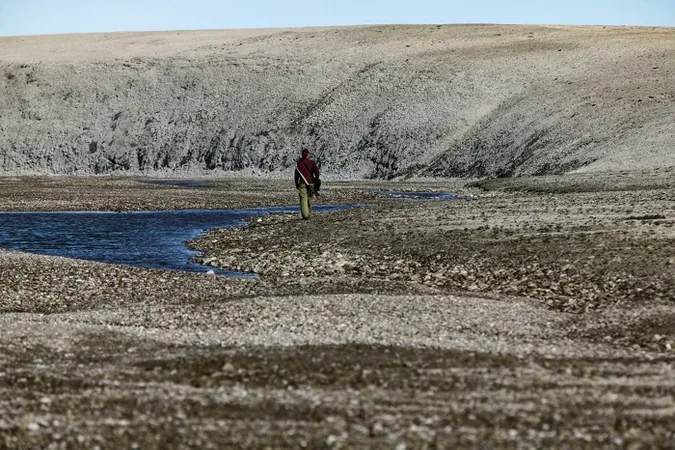
Unlocking the Secrets of the Past: Ancient Proteins Found in 24-Million-Year-Old Teeth!
2025-07-11
Author: Sophie
Ancient Proteins: The New Time Capsules of Evolution
Imagine decoding the secrets of evolution hidden within the enamel of teeth that are tens of millions of years old! Two groundbreaking studies have done just that, revealing new protein sequences from ancient teeth that date back an astonishing 24 million years.
Published in the prestigious journal Nature on July 9, these studies mark a significant leap in paleontology, offering insights that fossils alone cannot provide. As Evan Saitta, a noted paleontologist, excitedly proclaims, "This is all very exciting stuff!"
Why Proteins Matter
Traditionally, scientists have relied on bone morphology to trace family trees of long-extinct animals, a method that can often lead to ambiguous conclusions. While DNA gives us vital clues, the oldest recovered DNA signals come from just 1.2 million years ago, found in Arctic samples. However, proteins, which can endure far longer, serve as a treasure trove of molecular data.
The oldest confirmed protein data was previously a 3.7-million-year-old collagen from a camel relative. This new discovery flies well beyond that benchmark!
Digging Into the Past: The Arctic Findings
Researchers from the University of Copenhagen ventured into the frigid high Arctic, targeting the enamel—the sturdy outer layer of teeth—to extract ancient proteins. Led by biomolecular paleontologist Ryan Paterson, the team analyzed a tooth fragment from an ancient rhino relative recovered from Canada’s permafrost, revealing around 1,000 peptide matches. This information allowed researchers to better position the species in the evolutionary tree.
Paterson notes that the proteins were indeed damaged, which is expected for such ancient samples, calling it "the most degraded proteome we’ve accessed yet." Yet, the data offers new insights into the timeline of the rhino family tree.
Treasure from the Turkana Basin
In the harsh environment of Kenya’s Turkana Basin, researchers examined ten fossilized teeth, showcasing incredible resilience by revealing peptides from specimens aged between 1.5 to an astonishing 29 million years. Timothy Cleland from the Smithsonian Institute, one of the study’s authors, highlights the importance of this region in understanding the evolutionary origins of animals like elephants and hippos.
Among the findings were tooth samples from an 18-million-year-old rhino relative and two other proboscideans, which are elephant ancestors. This significant data could help untangle the puzzling relationships within the ancient elephant family tree—a topic of much controversy among scientists.
Pioneering Methods: A Fork in the Road
The techniques utilized in these studies varied; the Canadian permafrost sample employed conventional methods regarded as highly reliable, while the Turkana Basin study explored less conventional methodologies that might require further validation.
Despite the differences, the consistency in protein preservation, especially in colder climates, tells us where future explorations should focus. Evan Saitta emphasizes, "If you're going to find old peptides, definitely seek high latitudes or cold temperatures."









 Brasil (PT)
Brasil (PT)
 Canada (EN)
Canada (EN)
 Chile (ES)
Chile (ES)
 Česko (CS)
Česko (CS)
 대한민국 (KO)
대한민국 (KO)
 España (ES)
España (ES)
 France (FR)
France (FR)
 Hong Kong (EN)
Hong Kong (EN)
 Italia (IT)
Italia (IT)
 日本 (JA)
日本 (JA)
 Magyarország (HU)
Magyarország (HU)
 Norge (NO)
Norge (NO)
 Polska (PL)
Polska (PL)
 Schweiz (DE)
Schweiz (DE)
 Singapore (EN)
Singapore (EN)
 Sverige (SV)
Sverige (SV)
 Suomi (FI)
Suomi (FI)
 Türkiye (TR)
Türkiye (TR)
 الإمارات العربية المتحدة (AR)
الإمارات العربية المتحدة (AR)